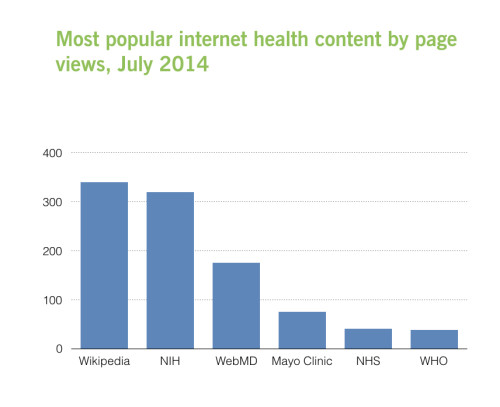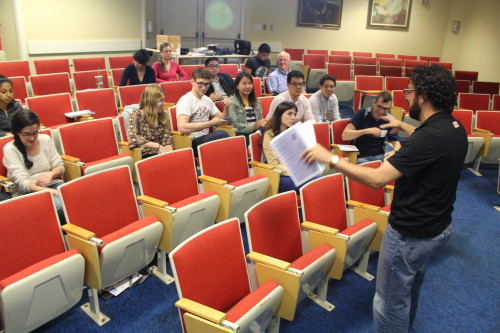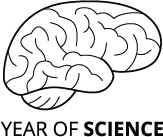When many people want to understand the side effects of a medication, or to diagnose a new pain or rash, the first line of inquiry for medical advice is a doctor named Google.
Many—if not most—of those searches end up on Wikipedia. The online encyclopedia has 25,000 medicine articles, seen by 200 million people per month.

Nearly 8,000 pharmacology articles are accessed 40 million times. Globally, medical information on Wikipedia earned a staggering 4.8 billion page views in 2013. In the US alone, Wikipedia’s health-related searches outnumbered websites such as the NIH, WebMD, and Mayo Clinic.
It’s not just patients. Wikipedia was described as “the leading single source of healthcare information for patients and healthcare professionals” in 2014.
For better or for ill, people are turning to Wikipedia for medical advice. That’s inspired a lot of hand wringing from the medical community. What can be done?
Dr. Amin Azzam, a professor of psychiatry at the UC-San Francisco School of Medicine, spotted an opportunity. He’s pioneering a novel solution suggested to him by former students: assign medical students the task of improving medical articles on Wikipedia. These students learn communication skills essential for any practicing health professional, and they improve the public’s access to reliable, accurate knowledge about health and disease.
The results of the first three cycles of Dr. Azzam’s Wikipedia-editing medical school course will be published later this year in a top-tier medical education journal.
The impact: the medical articles tackled by just 28 students were seen 975,000 times during only the times students were actively editing. Those students objectively improved the level of information found there. The manuscript examines outcomes based on WikiProject Medicine’s quality scale, as well as a review by a panel of UCSF-affiliated MD’s.
In other words, it’s working.
The Doctor is in (class)

The course adds an element that would otherwise be missing from Wikipedia medical editing: the oversight by experts, trained in medicine, channeled into improving Wikipedia.
“The historically missing partner in this collaboration has been academia — and that is what we’re trying to change with this course,” said Dr. Azzam. “It should be part of a physician’s social contract to provide high quality health-information on open repositories like Wikipedia.”
Working with fourth-year medical students, Dr. Azzam assigns his students Wikipedia articles from a list of the 100 most-read articles, as defined by WikiProject Medicine, a crucial partner for the course. Dr. Azzam sets students to work on fact-checking an article’s content, and adding sections that are missing. This term, all seven of his students collaborated on a single article: hepatitis.
It’s hard to imagine a better classroom for this type of assignment. It’s their final year of medical school, so these students are well versed in the foundational sciences of medicine. They have all passed the first part of the medical licensing exams, and many have passed the second. All of them have been rotating through different parts of hospitals and clinics, such as internal medicine, surgery, pediatrics, psychiatry, family practice, and obstetrics/gynecology.
“As a result of all this training, my medical students are well-qualified to be improving the medical and health-related content on Wikipedia pages,” said Dr. Azzam.
The impact on English Wikipedia is massive. But the project has expanded further through a partnership with Translators Without Borders. That group translates the top 100 medical articles into 100 languages. That means the student’s work on Wikipedia has an impact on global access to health information.
“I liked the idea of leaving my mark on Wikipedia,” said Michael Perez, a 4th year medical student currently enrolled in Dr. Azzam’s course. “(I’m) providing trustworthy medical information for people who don’t have the modest amount of medical knowledge I’ve gained over the last four years.”
When it started, Dr. Azzam admits that even he was skeptical. But this month, he and his co-authors of a paper about the course have been awarded the UCSF Academy of Medical Educators Cooke Award for the Scholarship of Teaching and Learning.
That’s a reflection of a broader trend: Wikipedia’s increasing acceptance in medicine and academia.
A prescription for medical communication
The Wiki Education Foundation, which supports Dr. Azzam’s course at UCSF, has been working with hundreds of classrooms across the United States and Canada. We’ve seen warming relationships between academia and Wikipedia, such as our partnership with the Association for Psychological Science.
Just as academics have warmed to Wikipedia’s role in a classroom, medical experts have warmed to Wikipedia. A major turning point was Wikipedia’s remarkable article on Ebola during the 2014 outbreak. This page was successfully updated through the efforts of WikiProject Medicine, which monitored the page.
This may have been the public’s first exposure to how medical content gets onto Wikipedia in the first place. There’s still a sense that Wikipedia gets edited willy-nilly by anyone with a mouse to click on and a keyboard to peck at. That’s simply not the case. Edits on the highest-traffic articles require proposals to a Talk page, independent of the main article. All content must be cited to a reliable and credible source of information. These citations are held to strict academic standards, and will get quickly deleted if they don’t pass muster.
“One thing that most surprised me about Wikipedia and the community was that the process of sourcing and citations is incredibly rigorous,” said Van Nguyen, a fourth-year medical student in Dr. Azzam’s course this term. She said she considered this process to be one of Wikipedia’s greatest strengths. “As an editor, I am responsible for this vetting, I decide what is and is not a worthy source of information. This was both an inspiring and also daunting task.”
This process is exactly why medical editing is a valuable learning experience for seasoned students in small settings, with dedicated supervision by an expert. The students are flexing their academic muscle when they propose edits for inclusion, select sources, and assess existing content.
It’s also a great chance to practice the invaluable skill of explaining complicated medical topics to a general audience. This is where those weaknesses come into play.
“I could understand a lot of [Wikipedia’s medical content], after two years of medical education!” said Alicia Adams, a fourth year medical student in Dr. Azzam’s Spring 2016 class. But she wondered if it was meaningful to share information in a way that was only accessible to people with advanced training in medicine. “That’s not sharing knowledge. I think it can isolate the medical content of Wikipedia from people who might benefit from it.”
Nguyen agreed. She sees it in her own family’s curiosity about medicine, despite their lack of training. Communicating medical information to patients in a meaningful way, she said, was a difficult, but important task.
“The most interesting part of this for me has been looking at these articles with a critical eye and attempting to translate our medical knowledge into something accessible,“ said Nguyen.
Get involved
 Dr. Azzam said one of the best way for other medical instructors to get involved is through a partnership with the Wiki Education Foundation.
Dr. Azzam said one of the best way for other medical instructors to get involved is through a partnership with the Wiki Education Foundation.
“They have amazing resources and infrastructure to optimize the value of Wikipedia-editing within your local context,” he said. “Their course dashboard provides easy capacity to design an assignment, assign students specific Wikipedia pages, follow peer-review of classmates, and track student activity at both the individual and collective levels.”
He also emphasized the value of working with a university librarian, or, for that matter, working with him.
“Your local librarians can help your students optimize their search and retrieval strategies with the resources available at your institution. Additionally, since I am so personally committed to this concept, I am also available to work with other health-professional school faculty members who’d like to design a similar course or assignment.”
The Wiki Education Foundation is proud to be collaborating with Dr. Azzam to produce a series of videos that help classrooms access, assess, write, and peer-review health-related content on Wikipedia. Our goal is to make it easier for more courses like Dr. Azzam’s to contribute high-quality medical content to Wikipedia.
That project folds perfectly into our Year of Science initiative, aimed to make improvements across Wikipedia’s science coverage, and improve the quality of open knowledge that anyone can access. We know students benefit, too, by considering the best way to share their own knowledge with the general public.
That means better, clearer, and more accurate medical information, too.
“I think it should be the responsibility of those who have the education and power to make it more palatable,” said Adams. “I’m not as intimidated because I know the articles don’t have to be intimidating. I know this because I’m helping write an article that won’t be.”
If you’d like to get involved with a similar Wikipedia assignment for your classroom, let us know. Reach us at contact@wikiedu.org.
Image: Modified from Noun project 579.svg by Jack Biesek, Gladys Brenner, Margaret Faye, Healther Merrifield, Kate Keating, Wendy Olmstead, Todd Pierce, Jamie Cowgill and Jim Bolek – The Noun Project, CC0.

un proyecto que obtuvo gran impacto, pese a que solo lo integraron 28 estudiantes
Great piece